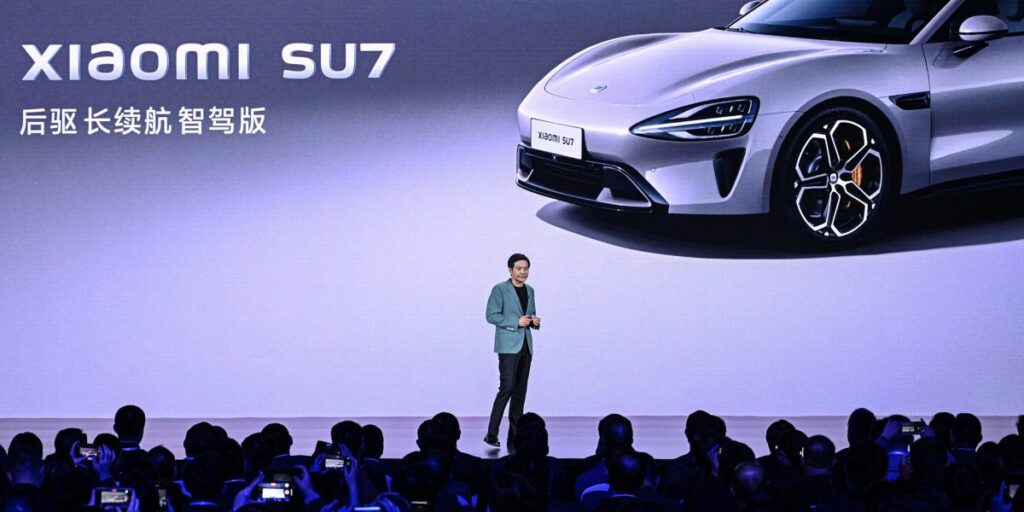
Anyone who has tried a Xiaomi smartphone knows that it is a worthy competitor to the iPhone. Now the question is, will Xiaomi pose the same challenge to Tesla as Apple?
On Thursday, the Chinese company unveiled its first electric car, the SU7 sedan. Founder and billionaire CEO Lei Jun – a household name in China –said at the presentation in Beijing: “Many people ask me who Xiaomi SU7 is created for. My answer: Isn’t it time for Tesla Model 3 users to upgrade?”
The emergence of another wealthy competitor in China comes at a difficult time for automaker Elon Musk. Last week, Bloomberg reported that Tesla had cut production of electric vehicles at its Shanghai plant amid intense competition and sluggish growth in China. Tesla’s market capitalization has fallen about 30% this year, prompting the company to abandon Musk’s no-advertising mantra. Tesla also faces competition from Warren Buffett-backed Chinese company BYD, which dethroned it as the world’s largest electric vehicle seller several months ago.
Of course, Tesla has already established itself as a leading electric vehicle manufacturer, while Xiaomi is a newcomer to the field.
“What I’ve learned most during the three years of developing this car is that making cars is extremely difficult,” Ley said on Thursday. “Even a giant like Apple has given up on it.”
In February, Lay responded to Apple’s termination of its electric vehicle project by saying he was “shocked” by the decision. He cited Apple co-founder Steve Jobs as his main inspiration for becoming an entrepreneur.
Xiaomi, which also makes smart TVs and home appliances, is as popular as Apple in China.
Big bet on electric cars
On Thursday, Lei said the SU7, available only in China, beats the Tesla Model 3 in 90% of its features, and Xiaomi needs a few more years to catch up with the rest. He said the sedan’s minimum range is 700 kilometers (nearly 435 miles), versus 606 for the Model 3. The base model will sell for less than $30,000, which is cheaper than the Model 3 in China.
Lay acknowledged that his company would currently lose money on every vehicle sold. In December, he said Xiaomi would spend 10 times more labor and investment than automakers typically spend on a new model. But he added On Thursday, “Xiaomi has enough cash reserves to cope with any tough competition in the next five years.”
Time will tell whether Lay made the right choice by entering the competitive electric vehicle market, or whether he should have strayed, as Apple did. Many electric vehicle startups that were once valued in the billions are now struggling.
“The risk is that they focus too much on the electric vehicle space and lose focus on the sectors and products that got them there,” Tu Le, founder of consultancy Sino Auto Insights, said Reuters.
But Xiaomi is going strong startAt least the company said it received 120,000 firm orders for the SU7 in 36 hours, meaning production capacity is sold out this year.


